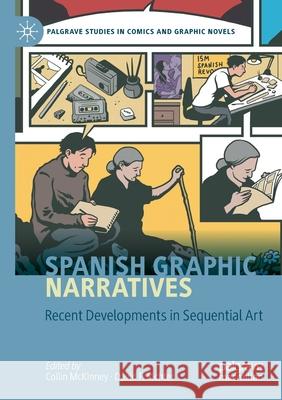Spanish Graphic Narratives: Recent Developments in Sequential Art » książka
topmenu
Spanish Graphic Narratives: Recent Developments in Sequential Art
ISBN-13: 9783030568221 / Angielski / Miękka / 2021 / 336 str.
Spanish Graphic Narratives: Recent Developments in Sequential Art
ISBN-13: 9783030568221 / Angielski / Miękka / 2021 / 336 str.
cena 523,30
(netto: 498,38 VAT: 5%)
Najniższa cena z 30 dni: 501,19
(netto: 498,38 VAT: 5%)
Najniższa cena z 30 dni: 501,19
Termin realizacji zamówienia:
ok. 22 dni roboczych.
ok. 22 dni roboczych.
Darmowa dostawa!
Kategorie:
Kategorie BISAC:
Wydawca:
Palgrave MacMillan
Język:
Angielski
ISBN-13:
9783030568221
Rok wydania:
2021
Ilość stron:
336
Waga:
0.40 kg
Wymiary:
21.01 x 14.81 x 1.78
Oprawa:
Miękka
Wolumenów:
01
Dodatkowe informacje:
Wydanie ilustrowane











